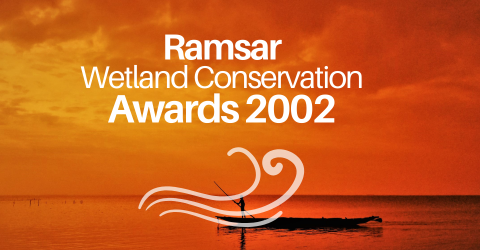
Award 1 2002
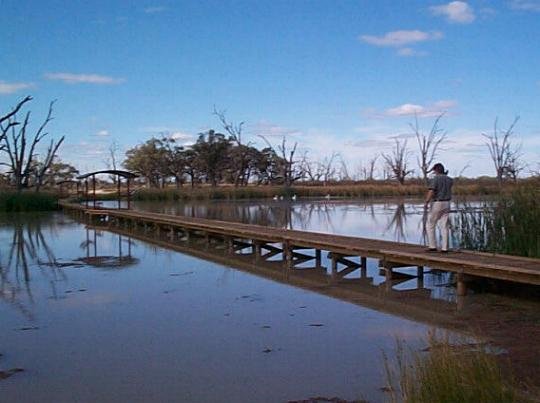
Banrock Station Wines, Australia
Banrock Station Wines has set a remarkable example of a private sector company taking a wide range of measures to benefit wetland conservation and wise use - locally, nationally and abroad. Its Banrock Station Initiative is being given the Ramsar Award in recognition of the innovative approach and support to the wise use of wetlands that the company has adopted.
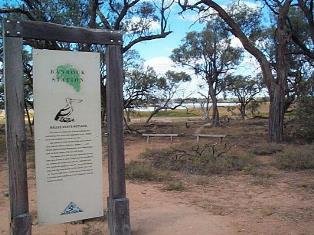
Since 1992, Banrock Station Wines has taken measures to rehabilitate the wetlands on its property in partnership withWetland Care Australia. The Banrock Station wetland complex is located on the floodplain of the River Murray (South Australia). Formerly subjected to regular natural flooding, it became permanently inundated after the installation of a dam, and this permanent inundation, along with the impacts of the invasive species European carp, sheep and rabbit grazing, and rising saline groundwater, seriously degraded the wetland complex. Since 1992, measures have been taken to reinstate a semi-natural cycle of wet and dry periods in the floodplain and to remove the invasive carp, sheep and rabbits. Adjoining woodland has also been rehabilitated. These measures have considerably improved the condition of the floodplain wetland as well as its adjacent wooded buffer zone.
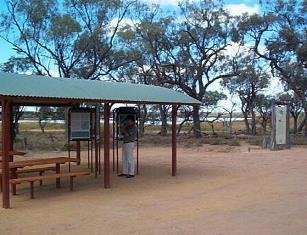
On the slopes around the floodplain, the grape growing areas are managed according to stringent environmental conditions, using minimal water through efficient irrigation methods, electricity conservation practices, and recycling. The Banrock Station complex operates as a fully integrated model for ecologically sustainable development. Visitors can learn more about wine, but also about wetlands and the work carried out to rehabilitate the site at a Wine and Wetland Centre, which has been added as an education and public awareness component.
Since 1995, the company has continued to support wetland conservation and wise use, not only in Australia but internationally as well, through financial assistance to wetland projects. A percentage of the revenue generated by the sale of Banrock Station Wine is being allocated to wetland conservation activities in Australia and abroad, notably in Canada, the USA, the United Kingdom, the Netherlands, Finland, Sweden, Denmark and New Zealand, countries in which the company markets its wines. Expansion of this sponsorship to other countries is being evaluated.
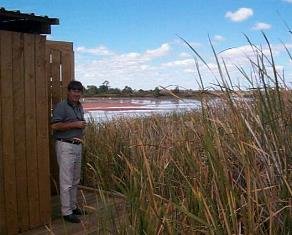
The Banrock Station Initiative is an impressive demonstration of a private sector company working to rehabilitate and manage its own wetland property, and support and encourage other wetland projects globally. In addition, the application of wise use principles and practices in viticulture, including education and public awareness activities has also been demonstrated through the Banrock Station initiative. Furthermore, it is an exemplary model for innovative sponsorship by the private sector of wetland conservation activities.
Banrock Station Wines has indicated that it will use the US$ 10,000 cash Evian Special Prize "to help support and advance the programmes of the Convention, especially in developing countries."
---Interview with Tony Sharley, Manager of Banrock Station Wines---
Q: Tell us about Banrock Station Wines
Banrock Station is a new global wine brand that has emerged as one of the fastest growing brands in the major wine drinking countries of the world.
The main driver in Banrock Station's success is its close association with the environment, which is strongly promoted through wetland sponsorships around the world. Consumers and retailers have responded to the opportunity of contributing to the environment.
 The idea of wetland sponsorship came in 1994 when a 1750 hectare property (4200 acres), at the junction of Banrock Creek and the Murray River, near Kingston-on-Murray, about 200km north-east of Adelaide was purchased to establish a vineyard to supply premium grapes.
The idea of wetland sponsorship came in 1994 when a 1750 hectare property (4200 acres), at the junction of Banrock Creek and the Murray River, near Kingston-on-Murray, about 200km north-east of Adelaide was purchased to establish a vineyard to supply premium grapes.
The Murray River is part of the massive Murray-Darling Basin, which drains approximately one fifth of Australia.
The property consists of 12.5km of River frontage, 600 hectares of mallee woodland, 900 hectares of wetlands and 300 hectares of previously cereal cropped areas for development of premium grape varieties.
The property had been intensively farmed for approximately 100 years and was suffering impact from prolonged farming and grazing in what was a very fragile environment. Wetland Care Australia, a conservation group had carried out some wetland restoration work with the previous owners, to restore the Banrock Lagoon.
This early conservation work was the catalyst of the environmental involvement for Banrock Station. The concept of establishing wetland projects outside of the property in conjunction with Landcare Australia was launched. Part proceeds from the sale of wine were donated back to environmental schemes around Australia.
This concept was so successful that the idea was launched internationally.
A major part of the Banrock Station success story is built upon the relationship between good earth, fine wine and the link with sponsorship of environmental projects around the world. Banrock Station pioneered this environmental wine marketing and part proceeds from sales have gone into restoring wetlands in nine countries. This philosophy is the key element in the positioning of the now world famous Banrock Station brand, which now sells in excess of two million cases per annum in 40 countries.
Banrock Station demonstrates how Australian agriculture can foster a sustainable future by emphasising a high level of environmental, social and economic responsibility. It has been awarded in a number of areas including tourism, building development, and in 2000, Banrock Station was a winner of the Prime Minister's inaugural Australian Business Award for Environmental Leadership.
Q: What inspired you to support wetland conservation projects elsewhere in Australia and other countries?
We recognise that healthy wetlands have increased the value of our property and created opportunities for us to generate income.
They also provide a natural mechanism or biological control for harmful insects in our vineyards.
In addition their beauty has inspired many people in our company.
The initial wetland restoration work carried out by Wetland Care Australia was the main catalyst and gave us the idea of linking wine to the environment.
We value wetlands so highly that when we launched our Banrock Station wines in 1995 we decided to market them by associating them with wetland conservation.
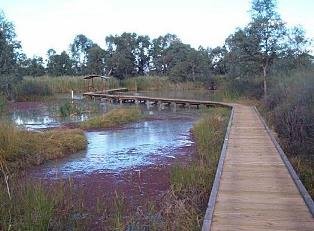
Q: Describe how Banrock Station Wines has benefited from wetland conservation activities.
The sales of our wines have increased because consumers feel it is important to support products that support environmental causes. The whole equation is win/win/win with consumers contributing to the environment, us selling more wine and the environment benefiting because of this involvement.
Since 1995 our wine sales have increased to an extent whereby our cumulative support for wetland conservation now exceeds $1.2 million (AUD) in nine countries. Internationally, 33 projects have been funded.
Q: How do you perceive the Convention on Wetlands?
We view the Convention on Wetlands as a global leader for wetland conservation that encourages governments from all countries to continually raise the conservation status of wetlands by promoting wise use.
The Convention on Wetlands is the global watchdog on wetlands.
Q: How are you progressing with seeking to list Banrock Station wetlands as a Ramsar site?
Firstly we sought advice on whether our wetland met the criteria for listing, and then we prepared the nomination documents.
Our nomination for listing has been through consultation with the public, and now the State Government of South Australia is considering the outcomes of the consultation before it makes a recommendation to the Australian Commonwealth Government.
Q: What was your response to winning the Ramsar Award and what does it mean to you?
We were overwhelmed and very proud of our company and all the organisations and individuals who have contributed to the restoration of the wetlands over the past 10 years.
It demonstrates the corporate sector can make a huge contribution to sustainable agriculture and the conservation of wetlands, and make a financial gain. Hopefully it will encourage more companies to do the same.
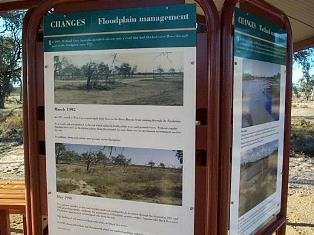
Q: How do you plan to use the prizemoney?
We are investigating channelling the prizemoney through the Ramsar Small Projects Fund into a wetland ecotourism project in Kenya.
Q: What are your plans for the future?
We are investigating establishing a Foundation to continue investing in wetland restoration activities in Australia and overseas.
Also, a "locally-extinct" species recovery program and relocation of our irrigation pumps are planned for our wetlands at Banrock Station.